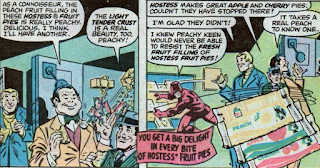I've written several posts over the years about Seduction of the Innocent, Fredric Wertham's scathing attack on the comic book industry. After rereading the book again, I've decided to address a few more of Wertham's arguments, which contributed to the Comics Code of 1954. Wertham held that comic books were anti-educational. Western comics, for example, did not accurately portray the American West. Additionally, placing dialogue in word balloons was just one of many practices that depleted comics of literary merit.
The merits of some of Wertham's claims were themselves suspect, however, such as his contention that superheroes promoted a Fascist ideology. In Chapter II, Wertham remarked that we should be thankful the S on Superman's chest was not an S.S. That comparison was blatantly ahistorical seeing how often comic books had portrayed Superman and other costumed heroes battling Nazis during the Second World War.
Wertham's credibility might be called into question elsewhere as well. In Chapter IV, he recalled a conversation with a boy who suffered from nightmares. The boy said he liked reading Blue Beetle comics, likening the title character to Superman but with the added power of turning into a beetle. Wertham said it was easy to understand why a child would be frightened after reading the adventures of a man who became an insect. The problem with Wertham's analysis, however, was that Blue Beetle did not transform into an insect—exposing Wertham's unfamiliarity with the material he was so prone to condemn.
Right or wrong, Wertham was convinced that comic books interfered with the psychological well-being of children and their ability to identify with positive role models. In Chapter IX, he asked, "Is that the best we can do for children, that we teach them the Green Lantern will help?" Interestingly, though self-reflection was uncommon for characters during the Golden Age of comics, Green Lantern would readily question his impact on society during the Bronze Age.
The original Green Lantern first appearance in All-American Comics #16 (July 1940).










































































